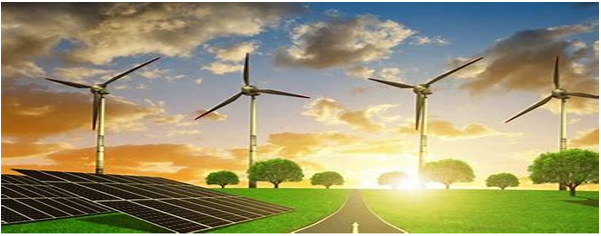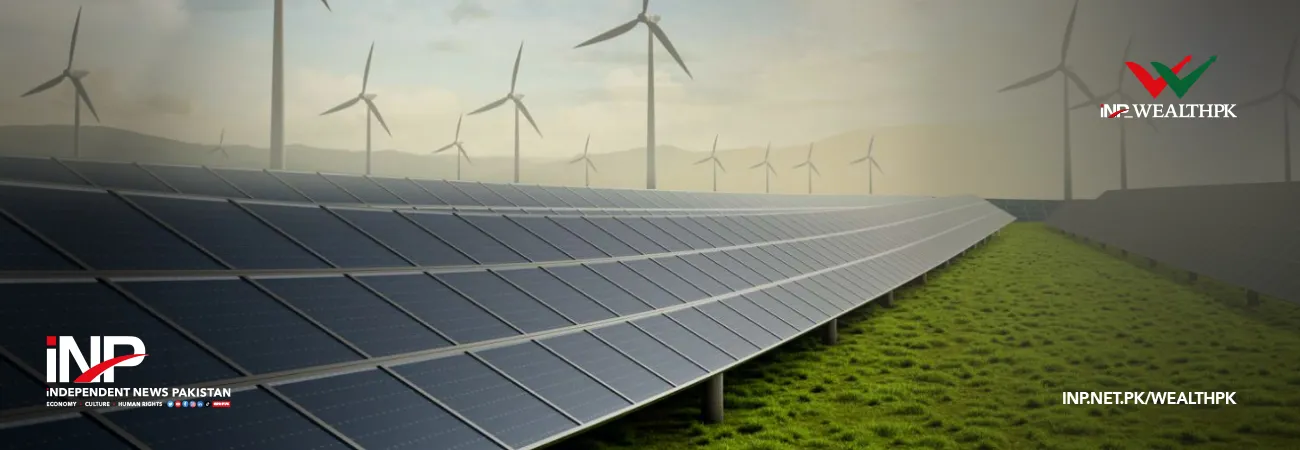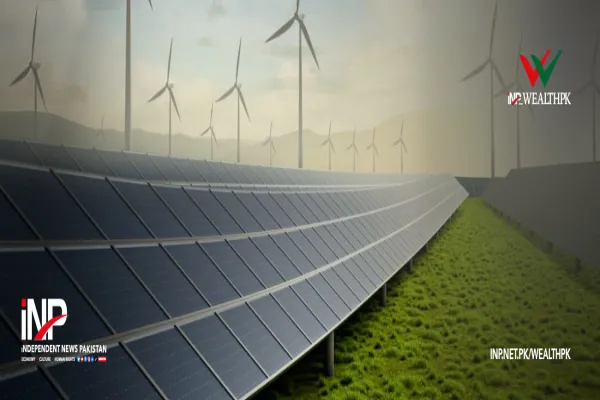i INP-WEALTHPK
Qudsia Bano
As Pakistan faces increasing threats from climate change and growing pressure on its energy imports, experts believe that the country’s economic stability now depends heavily on a timely transition to green energy.

Bilal Naveed, an energy economist at Centre of Sustainable Development, believed the shift is no longer optional. “Pakistan’s overdependence on imported fossil fuels is not only unsustainable but also exposes the economy to global price shocks. Investing in solar, wind, and bioenergy will not just improve energy security but also lower the cost of doing business,” he said.
His comments came against the backdrop of the Pakistan Alternative Energy Association’s National Conference on Alternate Energy and Climate Resilience, where policymakers and private sector leaders gathered to discuss the way forward. President of Islamabad Chamber of Commerce and Industry (ICCI) Nasir Mansoor Qureshi urged the government and industry stakeholders to prioritise alternate energy solutions, citing both environmental and economic reasons.
Experts attending the conference agreed that Pakistan cannot afford to delay action. Rabia Shahid, a renewable energy consultant at EcoWise Solutions, pointed out that climate-related disasters in recent years have severely impacted Pakistan’s productivity. “Floods in 2022 cost the economy over $30 billion. Alternate energy is not just about power generation anymore; it is about resilience,” she said.
Currently, Pakistan produces nearly 60% of its electricity through fossil fuels, mostly imported oil and gas, according to the National Electric Power Regulatory Authority’s latest State of Industry report. The growing energy import bill has been a persistent drain on the national budget amid rising international fuel prices. Despite having enormous potential for solar and wind power, renewable energy still contributes less than 5% to the national energy mix.
Experts say that the gap must close quickly. Umair Ghumman, a clean-tech analyst at Engrid, a sustainable energy company, said the government’s previous attempts at feed-in tariffs and policy incentives lacked consistency. “What’s needed now is long-term regulatory commitment and access to green financing, especially for small and mid-scale industrial users who are willing to adopt solar but face capital constraints,” he explained.
The ICCI, through its various policy forums, has pledged to work with industrial sectors, energy experts and development partners to advance green adoption. The chamber believes that an integrated approach is needed, combining technical innovation, better policy design, and awareness across all tiers of the economy.
Data from the Pakistan Renewable Energy Coalition shows that if the government meets its existing target of 30% renewable energy by 2030, the country could save up to $6-7 billion annually in energy imports and reduce carbon emissions by at least 20 million tons per year.
With electricity demand rising and the effects of climate change becoming more severe, the consensus among industry experts is clear: the green energy transition is no longer a luxury but a national economic imperative.
Credit: INP-WealthPk









